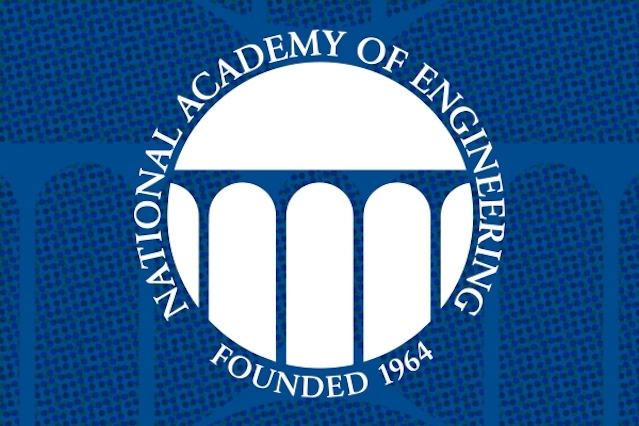
“This is a great class of new NAE members who are affiliated with MIT,” says Ian A. Waitz, dean of the School of Engineering and the Jerome C. Hunsaker Professor in the Department of Aeronautics and Astronautics. “It is wonderful to see our faculty and alumni being honored by their peers for contributions of the highest level.”
Image courtesy of the National Academy of Engineering.
New members have made advances in artificial skin, wireless communications, nanotechnology, hydrology, and cancer treatment.
Source: [School of Engineering, February 10, 2017]
Eight MIT faculty are among the 84 new members and 22 foreign associates elected to the National Academy of Engineering. Newly elected members for this year also include an impressive 18 MIT-affiliated alumni.
Election to the National Academy of Engineering (NAE) is among the highest professional distinctions accorded to an engineer. Academy membership honors those who have made outstanding contributions to “engineering research, practice, or education, including, where appropriate, significant contributions to the engineering literature,” and to “the pioneering of new and developing fields of technology, making major advancements in traditional fields of engineering, or developing/implementing innovative approaches to engineering education.”
The eight elected this year include:
Paula Hammond, the David H. Koch Professor, head of the Department of Chemical Engineering, and member of the Koch Institute for Cancer Research, for contributions to self-assembly of polyelectrolytes, colloids, and block copolymers at surfaces and interfaces for energy and health care applications.
Daniel Hastings, the Cecil and Ida Green Education Professor in the Department of Aeronautics and Astronautics and chief executive officer and director of the Singapore-MIT Alliance for Research and Technology, for contributions in spacecraft and space system-environment interactions, space system architecture, and leadership in aerospace research and education.
Dara Entekhabi, the Bacardi and Stockholm Water Foundations Professor in the departments of Civil and Environmental Engineering and Earth, Atmospheric and Planetary Sciences, for leadership in the hydrologic sciences including the scientific underpinnings for satellite observation of the Earth’s water cycle.
Dina Katabi, the Andrew (1956) and Erna Viterbi Professor in the Department of Electrical Engineering and Computer Science and a member of the Computer Science and Artificial Intelligence Laboratory (CSAIL), for contributions to network congestion control and to wireless communications.
Alexander H. Slocum, the Pappalardo Professor of Mechanical Engineering in the Department of Mechanical Engineering, for contributions to precision machine design and manufacturing across multiple industries and leadership in engineering education.
Michael S. Strano, the Carbon P. Dubbs Professor of Chemical Engineering in the Department of Chemical Engineering, for contributions to nanotechnology, including fluorescent sensors for human health and solar and thermal energy devices.

